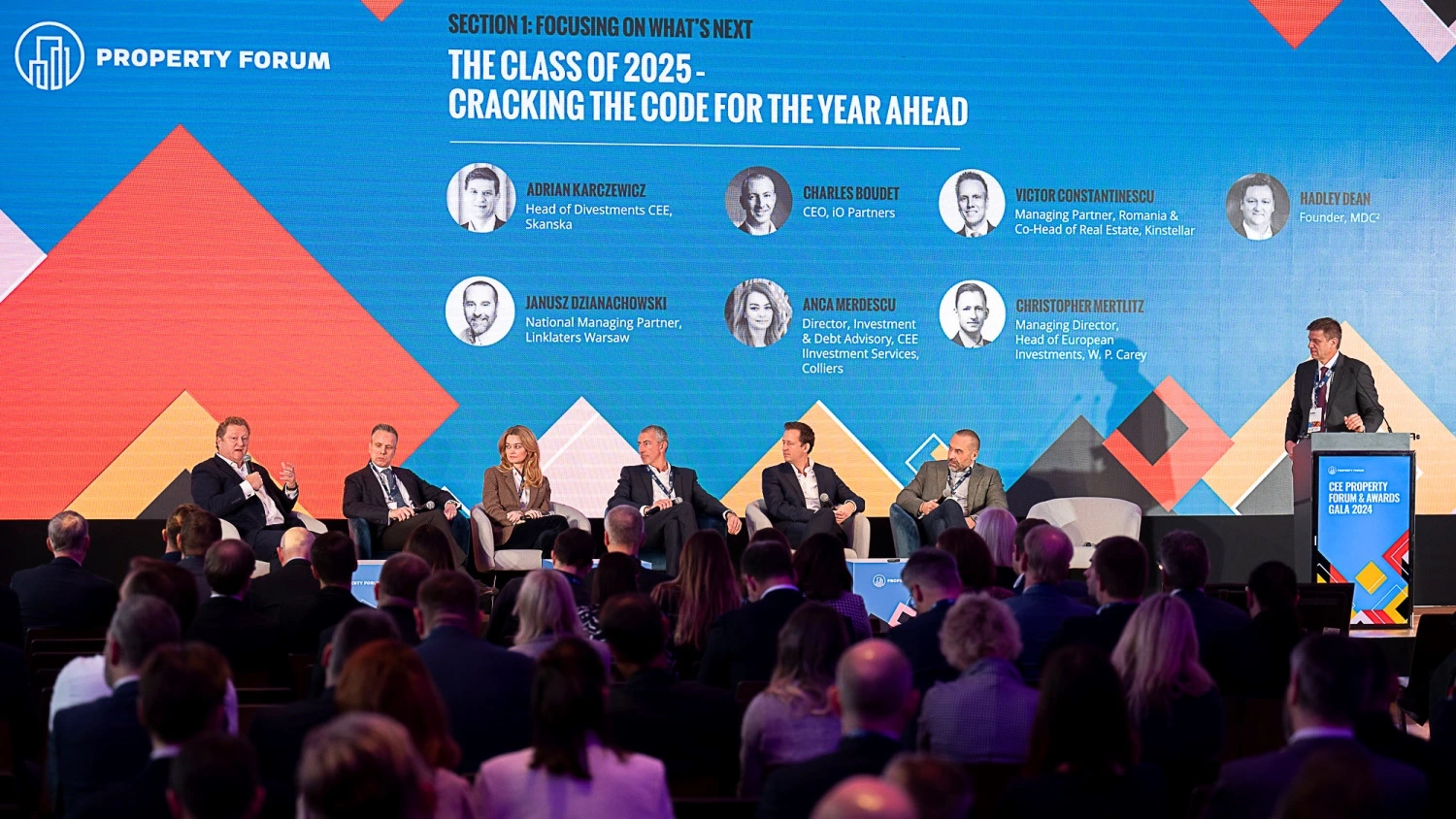
Real estate investment experts are not too worried about the potential negative impacts of the second Trump presidency on Europe’s economy. However, they agree that Europe as a whole must react quickly to improve its competitiveness. That was one of the key messages of the opening panel of CEE Property Forum 2024, held last week in Vienna.
The discussion emphasized long-term investment strategies, a shift from yield-driven to rent-driven approaches, and the imperative for offices to adapt to post-COVID work practices. A key topic was the resilience of the CEE region against external economic shifts, alongside its ability to navigate new challenges, particularly in the office market.
Panellists expressed optimism about leveraging opportunities from technological innovation, sustainability, shifting demographics, and evolving market demands. While acknowledging challenges such as high interest rates, economic uncertainty, and regulatory changes, they stressed the importance of embracing proptech and prioritizing ESG compliance in investment decisions.
Facing economic challenges together
During the panel, "The Class of 2025 – Cracking the Code for the Year Ahead," moderated by Adrian Karczewicz, Head of Divestments CEE at Skanska, participants tackled the question: Does Europe need to fear the economic ripple effects of reshaped American policies? While no definitive answer was given, the consensus was clear: the response of major European economies will significantly influence the commercial real estate (CRE) sector.
Christopher Mertlitz, Managing Director and Head of European Investments at W.P. Carey, highlighted the end of the outsourcing era, emphasizing the successful shift toward nearshoring. He urged investors to adopt long-term strategies, cautioning against waiting for "calm or moderate years," as uncertainty is a constant.
Hadley Dean, Founder of MDC, echoed this sentiment, noting signs of recovery in the property market despite reduced German investor activity. He acknowledged the potential pressure from the Trump administration but suggested Europe could respond with a more coordinated approach, leveraging advanced technologies and prioritizing value creation. He stressed the importance of reducing energy dependency outside Europe, as cheap energy is critical for economic growth.
Reindustrialization and investment opportunities
Victor Constantinescu, Managing Partner, Romania & Co-Head of Real Estate at Kinstellar, pointed to ongoing reindustrialization in Europe, predicting increased demand in industrial and logistics sectors—opportunities CRE companies must seize.
Anca Merdescu, Director of Investment & Debt Advisory for CEE at Colliers, expressed optimism about 2024 investment volumes, anticipating heightened transaction activity in Poland, Romania, and the Czech Republic. She noted improved sentiment in Romania despite political uncertainties, driven by rising volumes and strong growth prospects.
Janusz Dzianachowski, National Managing Partner at Linklaters Warsaw, highlighted the CEE region’s adaptable and innovative office market. He stressed the importance of being "closer to assets" rather than managing them remotely, citing the region's resilience despite reduced German investment. However, he cautioned against over-reliance on Germany and urged diversification.
Adapting to market realities
Panelists agreed that while the CEE region has shown growing resilience, it lacks the asset class diversity seen in the U.S. and Western Europe. Victor Constantinescu advocated for alternative investments such as student housing, senior care facilities, and residential projects. He also noted that asset repricing had begun in parts of Europe but called for accelerated progress in Germany and the CEE region.
Charles Boudet, CEO of iO Partners, underlined the cyclical nature of real estate, predicting that rents—not yields—will drive the market in the coming years. He urged CEE office asset managers to draw lessons from the hospitality sector, which has excelled in the U.S. and Western Europe.



